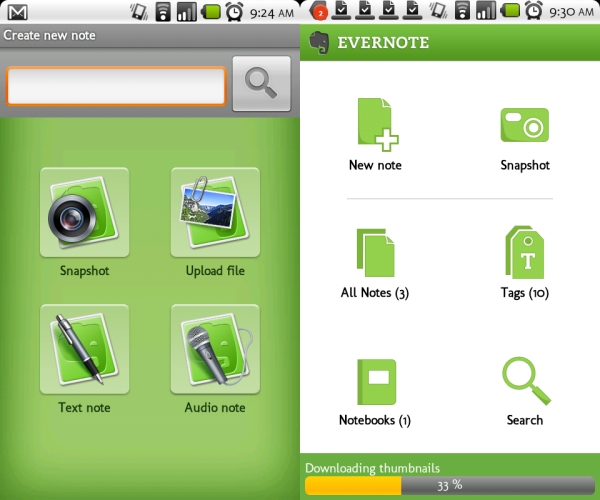Genealogy remains one area of research where the latest trends in technology are often overlooked, especially in the area of digital organization. Family historians utilize searchable databases, internet searches, and digitization projects, but overlook one very powerful tool of organization: Evernote. In the search for an elusive ancestor or lost records, genealogists often amass a large amount of records or documents in both digital and print form. This collection of records can be gathered and archived with Evernote, a free, web-based downloadable program that allows users to collect and organize all their documents in one place. Evernote has emerged as a clear winner for genealogy research, “It’s no exaggeration to say that this tool will change your research life. Evernote gives you a place to organize all your genealogical data,” stated Kerry Scott in the November 2015 issue of Family Tree Magazine.
Evernote is an easy to use program that can be downloaded to your computer and used across multiple platforms such as your smartphone, iPad, or tablet. This feature allows you to have access to your notes, even when you are not at your computer. Evernote allows you to keep track of your research by creating notes and placing them in notebooks. You can create a specific notebook for your family research, such as “Ward Family Vital Records” and place notes inside the notebook. You can use tags in your notes to help keep track of your records. Make sure that you download the web clipper for Evernote as well, and you can clip web pages to add to your notes.
Evernote is user-friendly and allows the researcher to create a filing system that makes sense to their research. Researchers can use the program to organize stacks of information in a simple file structure. Researchers will create notebooks, within which they can file notes that can be searched with the help of tags. Notebooks can be named such as “Ward Family Vital Records”, “Census Records, Indiana” or “DAR Application Proofs”. Notes can be created and then placed inside the notebooks. Tags are used to help you find the information in a fast and efficient manner. You can tag the notes with labels such as “Ward Birth Records” or “Indiana”. At a later date, you can search Evernote for “Indiana” tags and the program will bring up any notes with an “Indiana” tag.
This blog post was written by Genealogy Librarian Crystal Ward, Indiana State Library. For more information, contact the Indiana State Library at (317)232-3678 or “Ask-A-Librarian” at http://www.in.gov/library/ask.htm.

